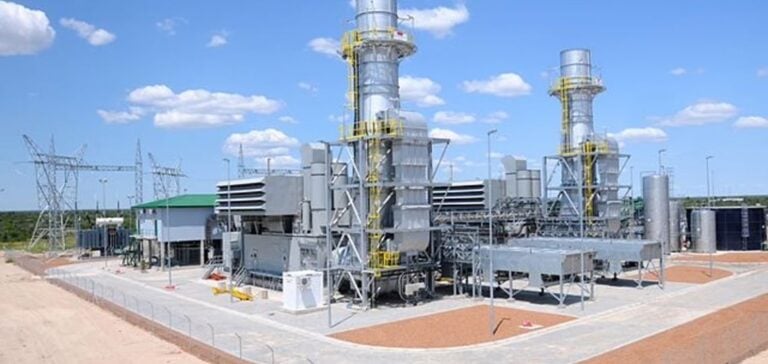The President of Ghana, Nana Akufo-Addo, inaugurated on November 19, 2024, a combined-cycle power plant in the industrial zone of Kpone. Powered by natural gas, this facility is a major component of the Ghana Bridge Power Project (GBPP), a program aimed at providing a maximum capacity of 515 MW of electricity for a projected cost of USD 1.2 billion.
An advanced power generation project
The plant, with an initial capacity of 200 MW, uses heat recovery technology and advanced cloud-based management systems. This first phase is built on six turbines, including five TM2500 aeroderivative models powered by natural gas and one steam turbine. Supplied by the technician GE Vernova, these units mark a global first in innovation for power plants.
The GBPP, initiated in December 2018, plans a second construction phase for an additional 315 MW power plant by 2029. Once completed, the GBPP could represent over 7% of Ghana’s installed thermal capacity, making a crucial contribution to meeting the growing electricity demand of households and industries.
Persistent challenges in the thermal sector
Despite its ambitions, Ghana’s thermal energy sector continues to face significant challenges. In 2021, although the installed capacity reached 5481 MW, actual availability often fell below 2400 MW, mainly due to natural gas supply issues. This vulnerability raises questions about the sustainability and reliability of an energy model based on thermal power.
To mitigate these risks, Ghana relies on strategic partnerships. The GBPP is co-owned by the Ghanaian company Andaris Energy and the American company Endeavor Energy. The plant’s production will be entirely sold to the Electricity Company of Ghana (ECG) under a 25-year contract, providing financial stability to the project.
An ongoing energy transition
Ghana, where natural gas has accounted for 63% of the energy mix since 2022, continues to enhance its electrical infrastructure to meet economic and demographic growth. The GBPP, with its innovative capabilities and integrated approach, illustrates the country’s commitment to greater energy autonomy while ensuring sustainable and balanced development.






















